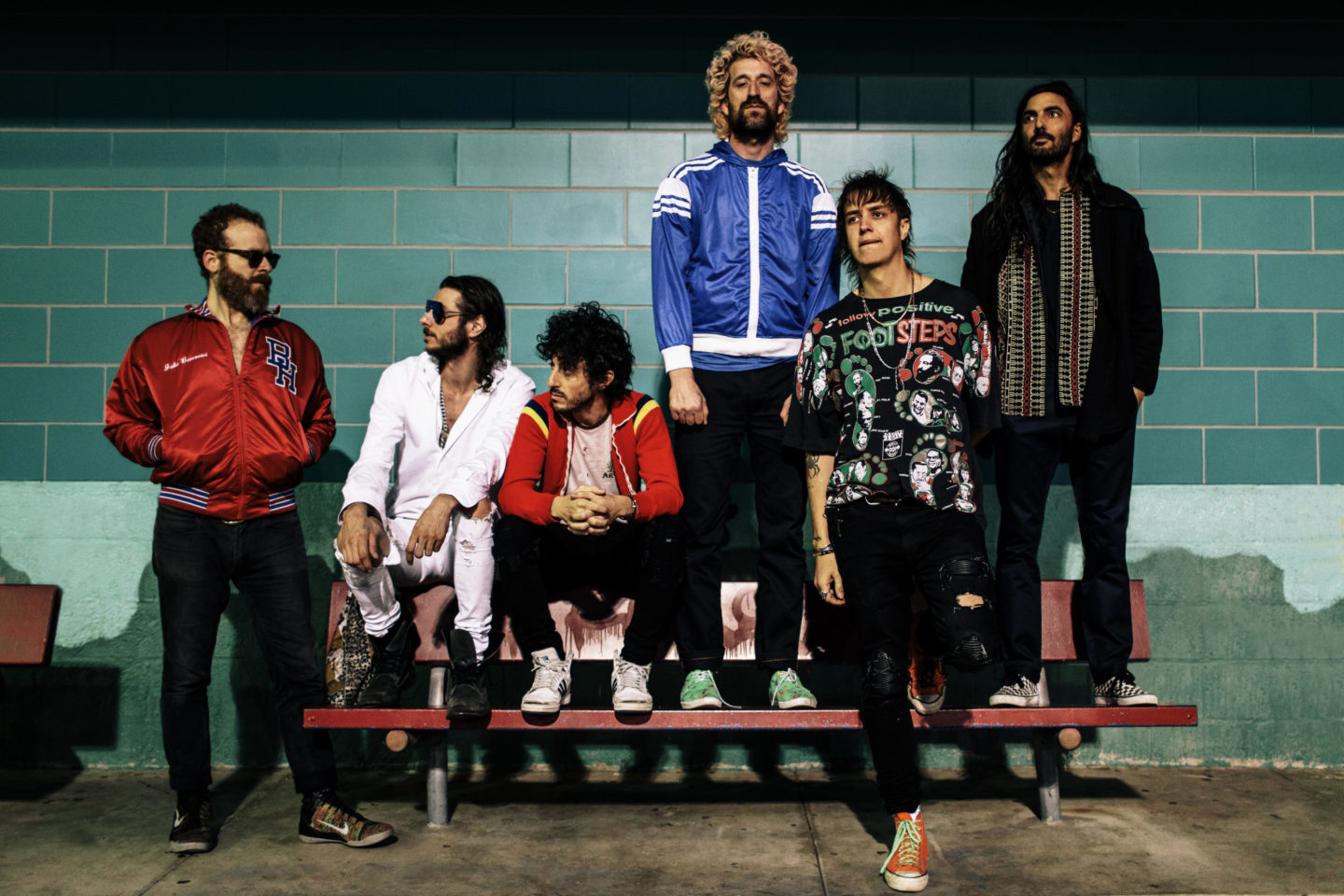Life is hard for legendary rock bands when they hit early middle age. Everyone assumes your best work is behind you, but your audience isn’t quite old and tired enough that they’ll lazily pretend to enjoy whatever trash new music you happen to shrug up (Hello Foo Fighters and Pearl Jam). So you come out with a new record, and it’s given a fraction of a chance before being dismissed as the echo of the echo of your former glories, an excuse to keep the touring cash cow going, and then forgotten about forever.
As we run into 2018, the early millennium new rock artists generally tend to find themselves here. Franz Ferdinand and Jack White both released new albums this year, and Interpol will soon. And I haven’t listened to or probably won’t listen to them (even with all the buzz of their comeback a few years ago, I didn’t really listen to that Libertines record when it came out). Even though these are some of my absolute favourite bands of all time, whether due to fair anticipation or unfair prejudice, I still can’t muster up much enthusiasm to listen to what their late thirties, early forties incarnations can create.
The exception to this has always been The Strokes, and Julian Casablancas in general. I first started listening to them in maybe 2008 or 2009, which coincided with his Phazes For The Young era, so maybe I went into the Strokes-world conscious of the fact that not everything Casablancas put pen to would sound like New York City Cops. But everything that followed (Angles, Comedown Machine, Future Past Present), while being admittedly patchy, still had enough interesting moments to keep me tuned in. And Tyranny, his first outing with The Voidz, was genuinely one of my favourite records of 2014. So at this point, unlike his contemporaries, Casablancas has kept me on the hook, and I’m always willing to give his work the time and effort I might not give new Franz Ferdinand (even though Franz Ferdinand was the first album I ever bought).
But for Casablancas, his ambitions stretch beyond retaining the interest of a few weirdo devotees (like me). With The Voidz’s new album, Virtue, he’s lopped his own name off the band’s title (it’s now just The Voidz, Casablancas-branding removed) and is targeting a bigger fanbase than Tyranny could reach (however good that record was, it wasn’t exactly ‘mainstream friendly’).
‘Our goal was to make a record that a wider audience would enjoy as much as we enjoyed the first album […] Still a swirl of different styles, but I think this might the most eclectic record I’ve ever been a part of. There’s a song on there for everyone”’
Basically, it would appear that the idea is to move The Voidz away from the realm of side-project, and make them a genuinely popular creature in their own right (and who knows, maybe in the future the name ‘Julian Casablancas’ can appear in a sentence without the words ‘Strokes frontman’ being attached?). Having already made his mark at the high-point of his profession, Casablancas wants to earn a second act.
That ‘spin all plates simultaneously’ approach will probably exclude Virtue from joining Is This It and Room On Fire as one of Casablancas’ classic, 10/10 albums. It’s just a bit too long, too messy, too, well, eclectic, for any listener to make it through its fifteen-track run without hitting a bump or a track they might wonder if the album might do better without, though the obvious early candidate, the sea-shanty-ish Think Before You Drink has actually grown on me (As a side-note, Think Before You Drink is a cover of an incredibly obscure song by an incredibly obscure 70’s artist called Michael Cassidy, with no Wikipedia page and less than 1,000 Spotify plays. Where the fuck did Casablancas find it? Did he drag it out of the vinyl bins at his local charity store?). But that’s kind of the point. Casablancas has already made his short, coherent classics: Virtue is instead a sprawling jungle of new sounds, styles and adventures (and yes, even politics, though the worldview here is often closer to cyberpunk’s dazed horror at the world we’ve let form around us, than anything more practical). It might be that very few people will get through Virtue and think of it as a perfect record, but even fewer will get through without finding a lot they like, a couple of songs to treasure and a solid interest in The Voidz as a distinct project. For people that stay on the train past this stop (and I think a lot will), it won’t be to see if the guy from The Strokes can recapture his former glories, it’ll be to see where this weirdo takes his music next.
And that, I think, kind of shows that The Voidz have nailed the landing on Virtue. There’s definitely no sense of trying to maximise diminishing returns here, of trying to squeeze new life out of an early-2000s formula. Instead, Casablancas has given himself a new role, that of the eccentric art-rock auteur, who can punch in multiple and unpredictable directions while remembering that his gift for a melody was what got him here in the first place. The Strokes are still alive, but if Virtue doesn’t establish The Voidz as a different beast entirely then nothing will. Casablancas has earned himself the right to a second act.
Virtue is out now on Cult/ RCA
